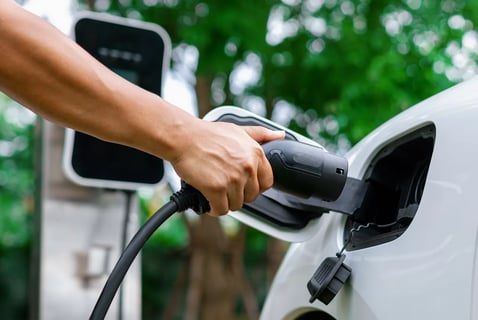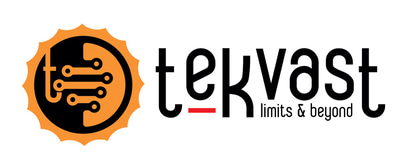EV Chargers
While electric vehicles (EVs) may have a higher initial purchase price, they are often more cost-effective in the long run, thanks to significantly lower running costs. Electricity is generally cheaper than petrol or diesel, and charging your EV at home—especially overnight—offers the best savings.
EV chargepoints can be installed in a wide range of locations, including private driveways and garages, workplaces, residential streets, town centres, public parking areas, and at high-traffic destinations such as shopping malls and motorway service stations. This growing infrastructure makes owning and operating an EV more convenient than ever.


Why Choose Tekvast ?
Your Trusted Partner for Smart, Sustainable, and Scalable Solutions
Industry Expertise
At Tekvast, our knowledgeable and approachable team is always ready to assist you in selecting the right solution—whether it’s EV charging, solar installation, or industrial system design. We tailor our approach to meet your specific needs, ensuring maximum value and performance.
Top-Tier Engineering Team
Our engineers are fully certified and bring deep expertise across multiple domains including electrical, solar, and mechanical systems. As a progressive and professional company, we carefully select only the most qualified and experienced engineers to join the Tekvast team.
End-to-End Service – All Under One Roof
From the initial consultation and quote to final installation and post-project support, Tekvast handles every phase of your project. You deal with one dedicated team, making the entire process seamless and stress-free.
Exceptional Customer Support
Customer satisfaction is at the heart of everything we do. Our commitment to service excellence is reflected in the glowing feedback we receive from our clients. We go the extra mile to ensure you're informed, supported, and completely satisfied.
Warranties & Peace of Mind
All products installed by Tekvast come with the manufacturer’s warranty, and every solar PV installation includes a standard 24-month workmanship guarantee. We stand behind the quality of our work—always.


Types of EV Charger :
EV chargers are categorized based on their charging speed and power output. Here’s an overview of the main types:
1. Level 1 Charger (Standard Home Charging)
Power Output: 2–3 kW
Charging Time: 8–12 hours for a full charge
Connector Type: Standard 3-pin plug (in some regions)
Ideal For: Overnight home charging
Key Benefit: No additional installation required, plugs into a regular household outlet
2. Level 2 Charger (Fast Home & Workplace Charging)
Power Output: 7–22 kW
Charging Time: 3–6 hours for a full charge
Connector Type: Type 2 (commonly used in Europe and India)
Ideal For: Homes, offices, and commercial buildings
Key Benefit: Requires professional installation, significantly faster than Level 1
3. DC Fast Charger (Public Rapid Charging)
Power Output: 50–350 kW
Charging Time: 20–60 minutes for 80% charge
Connector Types: CCS, CHAdeMO, GB/T (depending on vehicle)
Ideal For: High-traffic areas, highways, commercial charging stations
Key Benefit: Ultra-fast charging—ideal for long-distance travel
FAQs
1. What type of EV charger is best for home use?
A Level 2 charger (7–22 kW) is best for home use. It charges faster and is more efficient than a standard plug-in charger.
2. How long does it take to charge an EV?
Level 1: 8–12 hours
Level 2: 3–6 hours
DC Fast Charger: 20–60 minutes (for 80% charge)
3. Can I install an EV charger in an apartment or shared parking area?
Yes, but it may require approval from the housing society or building management. We assist with the necessary permissions and electrical setup.
4. What are the ongoing costs of EV charging?
Home charging is significantly cheaper than petrol/diesel. Your electricity bill will increase slightly, but your overall running cost will be much lower.
5. Will the charger be compatible with all EVs?
We install universal chargers compatible with most EV brands. We also offer vehicle-specific options if required.
6. Do I need a separate meter for the EV charger?
Not always, but in some cases, a separate meter may help with tracking and subsidy benefits. We advise you during the assessment.
7. Do I need a Wi-Fi connection for the smart charger app?
Yes, smart chargers typically use Wi-Fi or Bluetooth to connect to an app that lets you monitor charging status and energy usage.
8. Is there a warranty on the charger?
Yes, all EV chargers we install come with a manufacturer’s warranty, and our installation work is covered by a workmanship guarantee.
